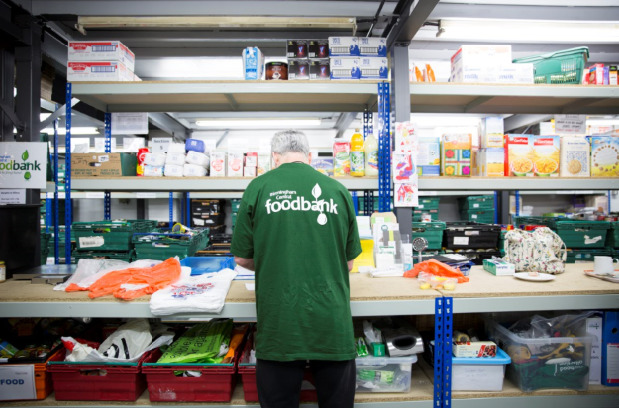By Lynda Battarbee, Director of Operations
Since the start of the pandemic, food banks have been incredibly busy: dramatically changing the way support is given so it’s safe and secure for all involved – including staff, volunteers, and people using the food bank; providing 2.5 million emergency parcels to people; supporting with vital research throughout the pandemic; and coming together to call for long-term change to address the issues driving food bank use.
Food banks have provided phenomenal support in their local communities during the pandemic and local people have rallied around them, providing essential food, financial donations, and volunteer support to ensure food banks could continue offering vital services to people in crisis. That support has been invaluable, and we should be encouraged by the way people have pulled together.
But it’s not right that anyone in our country needs to receive free emergency food in order to get by. That’s why we’re also working towards a future where everyone has enough money for the basics. That’s why we’re waiting to see what the new Scottish and Welsh governments decide about how to reduce the need for food banks following out calls in the lead up to May’s elections. We’re working closely with food banks to identify effective ways of reducing the need for food banks, and we’re starting to implement our plans for building a future where everyone has enough money for the basics. You can read more about how we’re doing that here.
While we work towards that future, right now as restrictions lift at various rates across the UK food banks are also working out how to continue supporting their local community.
There’s no one size fits all approach. Every food bank in the Trussell Trust network, whether it’s in Scotland, Wales, Northern Ireland, or England, is run by people in the community for the community – and each community is different.
Some food banks are able to meet people at a social distance to give food and signposting advice, some are continuing to deliver food to people’s homes, and some are doing a mix to make sure people can get the support they need in the way that best suits them.
At Smethwick Foodbank, the team have been providing a face-to-face outdoor service. Project Manager Janine explains:
“It’s been really busy – we’ve seen a huge increase in people needing us. We’ve not done any deliveries. Instead, we’ve been opening up in the front of the church and we do our meet and greet outside, in all weathers, under a gazebo. There’s been a lot of torrential rain in the last couple of weeks, but we’re hardy! It’s been good to see people and it’s great that our local Citizens ADvice is under the gazebo in every face-to-face food bank session so people can get advice there and then to make it less likely that they’ll need our help again.”
For South Belfast Foodbank, Bruce, the food bank’s Project Manager, explains:
“We’re delivery only at the moment – which is great, but it’s not us. We love the interactions with people face to face – we’re continuing home delivery for the foreseeable future and we’re putting together plans for some sort of in-person interaction with people later this year. We don’t have any firm plans but we’re quite a busy food bank, and even before lockdown we didn’t have the time and space to do sessions exactly as we’d like – so we don’t want to rush back into what we used to do. We’re going to take this time to think about how we might do things differently, how we can signpost each person to other advice and support, and really give each person quality time.”
For West Lothian Foodbank, deliveries have been crucial in getting support to people, as Project Manager Kathleen makes clear:
“When Covid hit, we switched form running 11 centres where people could come in person to running a delivery service almost overnight, which was tough going. We now have a fleet of four vans delivering parcels – last year was our busiest ever. At the moment, the churches that our centres are normally in are only just starting to open up, we’re in the middle of moving warehouse, and a lot of our volunteers are older, so we’re not rushing into changing things. We’re going to keep delivering parcels, see what happens with Covid, and then in the summer we’ll be able to think more about whether to change things.”
There’s no one thing food banks are deciding to do as lockdowns lift – each is working out what’s needed in their communities in order to provide emergency support safely. So, if you want to find out how best to support your local food bank as we move out of lockdown, it’s best to take a local approach!
You can check what support your local food bank most needs by following their social media channels or checking their website (find your nearest one by popping in your postcode here). You can check which items of food are most needed by using this tool, and you can look for volunteering opportunities in your area here.
This has been an incredibly difficult year for so many people. But with your support, food banks can provide emergency help and work towards a hunger free future where we all have enough money for the basics. This can change.



